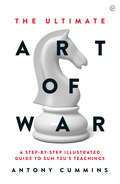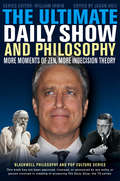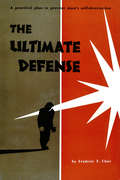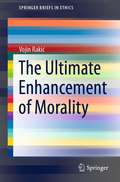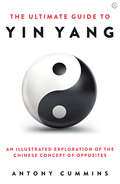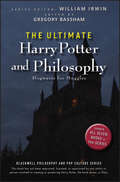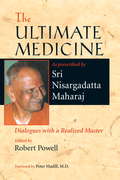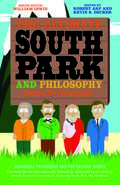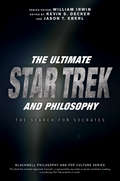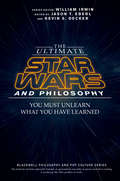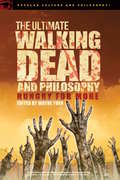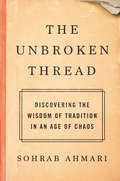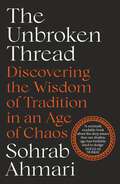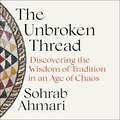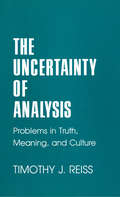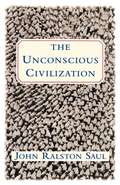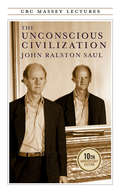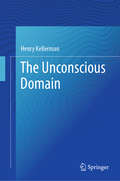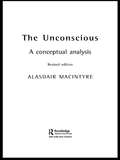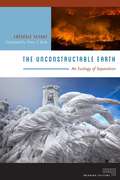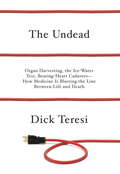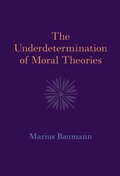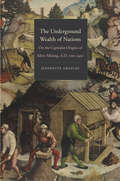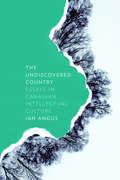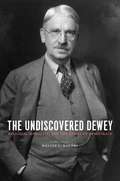- Table View
- List View
The Ultimate Art of War: A Step-by-Step Illustrated Guide to Sun Tzu's Teachings
by Antony CumminsThis is the most accessible edition of Art of War ever produced, with the text broken down into digestible individual lessons, unique teaching illustrations to clarify the text, and step-by-step commentary that draws on the full range of recent translations and ancient commentators.Composed in the 5th century BC, Sun Tzu's Art of War is the earliest-known treatise on military strategy, and is still hugely popular around the world for its perceptive tactical advice to commanders on how to win at war with minimal bloodshed. Aimed at all those who want to study the text in depth, this is the first step-by-step guide to the famous treatise, breaking down the 13 chapters of the original into 200 easily digested lessons, from 'do not press a desperate enemy' to 'control your troops through bond of loyalty' to 'when you are weak, beware attack', all accompanied by comprehensive commentary and clarified with around 250 illustrations. Making the lessons even more memorable and easy to understand, the black/red illustrations include strategic diagrams, evocative line drawings and beautiful calligraphy. This ultimate guide to Art of War includes the classic 1910 translation by Lionel Giles and commentary that takes into account all academic interpretations of the text, highlighting differences between modern translations as well as the perspectives of historical Chinese commentators. No other edition compares and contrasts the viewpoints of different contemporary translators, or explains exactly what each section of this often enigmatic text actually means.
The Ultimate Daily Show and Philosophy
by William Irwin Jason HoltSavor moments of Zen like never before, with our Senior Philosophical CorrespondentsThe Ultimate Daily Show and Philosophy is revised, expanded, and updated to probe deeper than ever before the philosophical significance of the quintessential "fake" news show of the 21st century.Features significant revisions and updates from the first 2007 editionIncludes discussion of both The Daily Show and its spin-off, The Colbert ReportReveals why and how The Daily Show is philosophically engaging and significantShowcases philosophers at their best, discussing truth, knowledge, reality, and the American WayFaces head on tough and surprisingly funny questions about politics, religion, and power
The Ultimate Defense: A Practical Plan to Prevent Man's Self-Destructio
by Fredric F. ClairThe utter extinction fo mankind by atomic warfare is a horrifying possibility-if not a probability-whether we face it or not. The Ultimate Defense diagnoses this most crucial problem of our generation and presents a practical plan for solving it.The ethical, pan-humanistic presentation of the author not only reveals a logical plan but also a specific plan. Through its strong personal effect upon the reader, each individual becomes aware of his responsibility for the situation and why it is necessary for him to contribute to its solution.Ringing with sincerity, the author's message extracts the very essence, the basic moral core that units all religions and reveals the identical ethics at the heart of all of them.This is no theoretical treatise on ethics, nor does it advocate any cult or creed. Based on a study of comparative religion, it brings into common focus, with burning brightness, the rays of light that emanate from all religions. The result is a central core of truth that shows not only how to prevent annihilation, but even more important, HOW TO LIVE.
The Ultimate Enhancement of Morality (SpringerBriefs in Ethics)
by Vojin RakićThis book deals with good, evil, happiness and morally enhanced post-humans. It offers a succinct historical elaboration of philosophical stances towards morality and happiness, focusing on Kant's ideas in particular. Human augmented ethical maturity in a futuristic version of Kant’s Ethical Commonwealth implies, among else, voluntary moral bio-enhancement (VMBE); consequently, more happiness – as morality and happiness are in a circularly supportive relationship; ultimate morality (UM). UM is in its own way a universal morality. In line with the contention that Kant’s vision of the (not immediate but more distant) future of humanity is one of a cosmopolitan moral order in which humans act virtuously in the broadest possible community, that is, humanity, it is justified to conclude that successful VMBE is conducive to Kant’s vision. In this context the book is of great interest to a broad audience, such as those interested in VMBE and novel conceptions of morality, and those with an interest in the historical development of morality and happiness, in philosophy (specifically, ethics) and in post-humanity.
The Ultimate Guide to Yin Yang
by Antony CumminsThe first book to fully explore and explain the concept of yin yang, breaking it down in easy-to-follow terms for all those interested in Daoism, alternative medicine, martial arts and other Eastern fields of study. Illustrated with striking red/black graphics that make the concepts more accessible.The concept of yin yang can be found in some of the oldest writing in the world. It is fundamental to Chinese thought and the route to understanding most Chinese practices, from Traditional Chinese Medicine to Daoism and feng shui. It also offers us ways of enhancing our own lives, establishing greater balance not only in our own environment but also in the wider world if we can work with other people to follow nature's flow. The central question of the book is "What is yin yang?" Step by step, with plenty of helpful illustrations and graphics, it explores the history and changing uses of yin yang - not forgetting the pronunciation and spelling (why yinyang is actually better than yin yang). The book also makes suggestions for working with yin yang, from observing the landscape to get a sense of the ebb and flow of energy through the world, to studying the patterns of nature in order to take what you need but not too much, to approaching sex as a cosmic ritual. After reading this book, readers will understand how to position themselves so that yin yang fills their lives with abundance - how to be in the right place at the right time.
The Ultimate Harry Potter and Philosophy: Hogwarts for Muggles (The Blackwell Philosophy and Pop Culture Series #7)
by William Irwin Gregory BasshamA philosophical exploration of the entire seven-book Harry Potter series Harry Potter has been heralded as one of the most popular book series of all time and the philosophical nature of Harry, Hermione, and Ron's quest to rid the world of its ultimate evil is one of the many things that make this series special. The Ultimate Harry Potter and Philosophy covers all seven titles in J.K. Rowling's groundbreaking series and takes fans back to Godric's Hollow to discuss life after death, to consider what moral reasoning drove Harry to choose death, and to debate whether Sirius Black is a man or a dog. With publication timed to coincide with the release of the movie Harry Potter and the Deathly Hallows (Part 1), this book will be the definitive guide for all fans looking to appreciate the series on a deeper level. Covers a range of intriguing topics such as the redemption of Severus Snape, the power of love, and destiny in the wizarding world Gives you a new perspective on Harry Potter characters, plot lines, and themes Makes a perfect companion to the Harry Potter books and movies Packed with interesting ideas and insights, The Ultimate Harry Potter and Philosophy is an ideal companion for anyone interested in unraveling the subtext and exploring the greater issues at work in the story.
The Ultimate Medicine: Dialogues with a Realized Master
by Robert Powell Sri Nisargadatta MaharajThe Ultimate Medicine is not for those who like their spirituality watered down, but for serious students searching for awareness. Sri Nisargadatta Maharaj (1897-1981) lived and taught in a small apartment in the slums of Bombay. A realized master of the Tantric Nath lineage, he supported himself and his family by selling cheap goods in a small booth on the streets outside his tenement for many years. His life exemplified the concept of absolute nonduality of being. In this volume, Maharaj shares the highest truth of nonduality in his own unique way. His teaching style is abrupt, provocative, and immensely profound, cutting to the core and wasting little effort on inessentials. His terse but potent sayings are known for their ability to trigger shifts in consciousness, just by hearing or reading them."The point is that man freed from his fetters is morality personified. Such a man therefore does not need any moralistic injunctions in order to live righteously. Free a man from his bondage and thereafter everything else will take care of itself. On the other hand, man in his unredeemed state cannot possibly live morally, no matter what moral teaching he is given. It is an intrinsic impossibility, for his very foundation is immorality. That is, he lives a lie, a basic contradiction: functioning in all his relationships as the separate entity he believes himself to be, whereas in reality no such separation exists. His every action therefore does violence to other 'selves' and other 'creatures,' which are only manifestations of the unitary consciousness. So Society had to invent some restraints in order to protect itself from its own worst excesses and thereby maintain some kind of status quo. The resulting arbitrary rules, which vary with place and time and therefore are purely relative, it calls 'morality,' and by upholding this man-invented 'idea' as the highest good-oftentimes sanctioned by religious 'revelation' and scriptures-society has provided man with one more excuse to disregard the quest for liberation or relegate it to a fairly low priority in his scheme of things."
The Ultimate South Park and Philosophy
by William Irwin Robert Arp Kevin S. DeckerEnlightenment from the South Park gang faster than you can say, "Screw you guys, I'm going home"!The Ultimate South Park and Philosophy: Respect My Philosophah! presents a compilation of serious philosophical reflections on the twisted insights voiced by characters in TV's most irreverent animated series.Offers readers a philosophically smart and candid approach to one of television's most subversive and controversial shows as it enters its 17th seasonDraws sharp parallels between the irreverent nature of South Park and the inquiring and skeptical approach of Western philosophyJourneys deep beyond the surface of the show's scatological humor to address the perennial questions raised in South Park and the contemporary social and political issues that inspire each episodeUtilizes familiar characters and episodes to illustrate such philosophical topics as moral relativism, freedom of expression, gay marriage, blasphemy, democracy, feminism, animal ethics, existential questions, and much moreIt's a Bigger, Longer & Uncut version of the highly acclaimed South Park and Philosophy: You Know, I Learned Something Today--and is guaranteed to be much funnier than killing Kenny
The Ultimate Star Trek and Philosophy
by William Irwin Kevin S. Decker Jason T. EberlReunites the editors of Star Trek and Philosophy with Starfleet's finest experts for 31 new, highly logical essays Features a complete examination of the Star Trek universe, from the original series to the most recent films directed by J.J. Abrams, Star Trek (2009) and Star Trek Into Darkness (2013) Introduces important concepts in philosophy through the vast array of provocative issues raised by the series, such as the ethics of the Prime Directive, Star Trek's philosophy of peace, Data and Voyager's Doctor as persons, moral relativism and the Federation's quest for liberation, the effect of alternate universes on reality and identity, the Borg as transhumanists, Federation Trekonomics, Star Trek's secular society, and much, much more...! An enterprising and enlightening voyage into deep space that will appeal to hardcore fans and science fiction enthusiasts alike Publishing in time to celebrate the 50th Anniversary of the original TV series
The Ultimate Star Wars and Philosophy: You Must Unlearn What You Have Learned
by William Irwin Kevin S. Decker Jason T. EberlDoes it take faith to be a Jedi? Are droids capable of thought? Should Jar Jar Binks be held responsible for the rise of the Empire? Presenting entirely new essays, no aspect of the myth and magic of George Lucas's creation is left philosophically unexamined in The Ultimate Star Wars and Philosophy. The editors of the original Star Wars and Philosophy strike back in this Ultimate volume that encompasses the complete Star Wars universe Presents the most far-reaching examination of the philosophy behind Star Wars - includes coverage of the entire film catalogue to date as well as the Expanded Universe of novels, comics, television series, games and toys. Provides serious explorations into the deeper meaning of George Lucas's philosophically rich creation. Topics explored include the moral code of bounty-hunter favourite Boba Fett, Stoicism and the Jedi Order, the nature of the Dark Side, Anakin and Achilles in a nihilism face-off, feminism and being chained to a giant slug, cloning, de-extinction, fatherhood, Wookiees, loyalty, betrayal, guardians, republics, tyrants, terrorism, civic duty, friendship, family, and more! Publishing in time for the global release of Star Wars Episode VII: The Force Awakens on December 18, 2015 - hotly anticipated to become the first film to top $3 billion in worldwide box office sales.
The Ultimate Walking Dead and Philosophy
by Wayne YuenIn The Walking Dead, human beings are pushed to their limits by a zombie apocalypse and have to decide what really matters. <P><P>Good and evil, freedom and slavery, when one life has to be sacrificed for another, even the nature of religion-all the ultimate questions of human existence are posed afresh as the old society crumbles away and a new form of society emerges, with new beliefs and new rules. The Ultimate Walking Dead and Philosophy brings together twenty philosophers with different perspectives on the imagined world of this addictive TV show. How can we keep our humanity when faced with such extreme life-or-death choices? Did Dr. Jenner do the right thing in committing suicide, when all hope seemed to be lost? Does the Governor, as the new Machiavelli, prove that willingness to repeatedly commit murder is the best technique for getting and keeping political power? Why do most characters place such importance on keeping particular individuals alive, especially children? What can we learn about reality from Rick's haunting hallucinations?
The Unbroken Thread: Discovering the Wisdom of Tradition in an Age of Chaos
by Sohrab AhmariWe&’ve pursued and achieved the modern dream of defining ourselves—but at what cost? The New York Post op-ed editor makes a compelling case for seeking the inherited traditions and ideals that give our lives meaning.&“Ahmari&’s tour de force makes tradition astonishingly vivid and relevant for the here and now.&”—Rod Dreher, bestselling author of Live Not by Lies and The Benedict OptionAs a young father and a self-proclaimed &“radically assimilated immigrant,&” opinion editor Sohrab Ahmari realized that when it comes to shaping his young son&’s moral fiber, today&’s America comes up short. For millennia, the world&’s great ethical and religious traditions taught that true happiness lies in pursuing virtue and accepting limits. But now, unbound from these stubborn traditions, we are free to choose whichever way of life we think is most optimal—or, more often than not, merely the easiest. All that remains are the fickle desires that a wealthy, technologically advanced society is equipped to fulfill.The result is a society riven by deep conflict and individual lives that, for all their apparent freedom, are marked by alienation and stark unhappiness.In response to this crisis, Ahmari offers twelve questions for us to grapple with—twelve timeless, fundamental queries that challenge our modern certainties. Among them: Is God reasonable? What is freedom for? What do we owe our parents, our bodies, one another? Exploring each question through the life and ideas of great thinkers, from Saint Augustine to Howard Thurman and from Abraham Joshua Heschel to Andrea Dworkin, Ahmari invites us to examine the hidden assumptions that drive our behavior and, in so doing, to live more humanely in a world that has lost its way.
The Unbroken Thread: Discovering the Wisdom of Tradition in an Age of Chaos
by Sohrab Ahmari'A serious - and seriously readable - book about the deep issues that our shallow age has foolishly tried to dodge' - Douglas Murray 'A crystal-clear analysis of the multiple failures of "me-first" contemporary liberalism' - Giles FraserFor millennia, philosophical, ethical and theological reflection was commonplace among the intellectually curious. But the wisdom that some of the greatest minds across the centuries continue to offer us remains routinely ignored in our modern pursuit of self-fulfilment, economic growth and technological advancement. Sohrab Ahmari, the influential Op-Ed editor at the New York Post, offers a brilliant examination of our postmodern Western culture, and an analysis of the paradox at its heart: that the 'freedoms' we enjoy - to be or do whatever we want, subject only to consent, with everything morally neutral or relative - are at odds with the true freedom that comes from the pursuit of the collective good. Rather than the insatiable drive to satisfy our individual appetites, this collective good involves self-sacrifice and self-control. It requires us to diminish so that others may grow. What responsibility do we have to our parents? Should we think for ourselves? Are sexual ethics purely a private matter? How do we justify our lives? These, and other questions - explored in the company of a surprising range of ancient and contemporary thinkers - reveal how some of the most ancient moral problems are as fresh and relevant to our age as they were to our ancestors.By plumbing the depths of each question, the book underscores the poverty of our contemporary narratives around race, gender, privilege (and much else), exposing them as symptoms of a deep cultural crisis in which we claim a false superiority over the past, and helps us work our way back to tradition, to grasp at the thin, bare threads in our hands, while we still can.
The Unbroken Thread: Discovering the Wisdom of Tradition in an Age of Chaos
by Sohrab AhmariSohrab Ahmari challenges the postmodern Western worldview by asking 12 timeless, fundamental questions about life - and reveals that true freedom and happiness is found in the wisdom of traditional thought.We've pursued and achieved the modern dream of defining ourselves - but at what cost? The influential New York Post op-ed editor makes a compelling case for the modern person to seek the inherited traditions and ideals that give our lives meaning.As a young father and a self-proclaimed 'radically assimilated immigrant' opinion editor Sohrab Ahmari realised that when it comes to morals and principles he'd want his son to inherit, today's America comes up short. For millennia, the world's great moral and religious traditions taught that true happiness lies in pursuing virtue - and accepting limits. But now, free from these stubborn traditions, we all exercise some degree of liberty to live the way we think is most optimal - or, more often than not, merely the easiest. All that remains are the fickle desires that a wealthy, technologically advanced society is equipped to fulfill.In response to this crisis, Ahmari offers twelve questions for us to grapple with - twelve timeless, fundamental queries that challenge our modern certainties. Among them: Is God reasonable? What is freedom? What do we owe our parents, our bodies, each other? Drawing on historical and contemporary figures from Saint Augustine to Howard Thurman to Abraham Joshua Heschel, he invites us to consider the hidden beliefs that drive our behaviour, and in so doing, recapture a more human way of living in a world that has lost its way.(P) 2021 Penguin Audio
The Uncertainty of Analysis: Problems in Truth, Meaning, and Culture
by Timothy J. ReissThe Uncertainty of Analysis pursues key issues raised in the author's earlier Discourse of Modernism, a ground-breaking work which focused attention on the nature of discourse and the ways in which one culturally dominant "discursive class" may be replaced by another. In this timely and provocative collection of his essays, Timothy J. Reiss shows how efforts to reconfirm the force and power of modernist, analytico-referential discourse in the late nineteenth and the twentieth centuries have actually brought to the fore internal contradictions, have made clear the problematic nature of the dominant discourse, and have precipitated the emergence of competing discourses.Reiss considers the explorations in foundational logic by Frege and Peirce; examinations of language and its relations to mind by Saussure, Greimas, and Chomsky; work in linguistic and scientific epistemology by Wittgenstein and Heisenberg; and the attempts to analyze the nature of society by Sartre and other Western Marxists. Reiss turns to some practitioners of literary criticism and theory who have sought to escape past constraints, and he points to what appear to be erroneous routes away from the dilemmas raised by these philosophers and critics.
The Unconscious Civilization
by John Ralston SaulIn this intellectual tour de force, Saul argues that the West now toils unconsciously in the grip of a stifling "corporatist" structure that serves the needs of business managers and technocrats as it promotes the segmentation of society into competing interest groups and ethnic blocks.
The Unconscious Civilization (The CBC Massey Lectures)
by John Ralston SaulGovernor General's Award Winner Tenth Anniverary Edition, with a new preface Our society, John Ralston Saul argues in his 1995 CBC Massey Lectures, is only superficially based on the individual and democracy. Increasingly it is conformist and corporatist, a society in which legitimacy lies with specialist or interest groups and decisions are made through constant negotiations between these groups. The paradox of our situation is that knowledge has not made us conscious. Instead, we have sought refuge in a world of illusion where language is cut off from reality. Reconnecting language to reality, clarifying what we mean by individualism and democracy, making these realities central to the citizen's life, identifying ideologies in order to control them, these are among the first elements of equilibrium which Saul proposes in these lectures.
The Unconscious Domain (Springerbriefs In Psychology Ser.)
by Henry KellermanThis book enumerates the components of the unconscious domain (or realm), and attempts to uncover the proposed communicational network of its operation — a communicational network that is able to link inherent participating components of this realm. It is often the case that theoreticians and clinical practitioners refer to the unconscious or unconscious material in a way that implies the sense of it all rather than a specific definition, broadly describing it as “material which is out of one’s awareness.” This volume therefore examines the complex existence of the entire unconscious realm embraced in an evolutionary historical context, defined here as the 'unconscious domain'.
The Unconscious: A Conceptual Analysis (Key Texts Ser.)
by Alasdair Chalmers MacIntyreThis edition includes a substantial new preface by the author, in which he discusses repression, determinism, transference, and practical rationality, and offers a comparison of Aristotle and Lacan on the concept of desire. MacIntyre takes the opportunity to reflect both on the reviews and criticisms of the first edition and also on his own philosophical stance.
The Unconstructable Earth: An Ecology of Separation (Meaning Systems)
by Frédéric NeyratWinner, Grand Prize, French Voices Award for Excellence in Publication and TranslationThe Space Age is over? Not at all! A new planet has appeared: Earth. In the age of the Anthropocene, the Earth is a post-natural planet that can be remade at will, controlled and managed thanks to the prowess of geoengineering. This new imaginary is also accompanied by a new kind of power—geopower—that takes the entire Earth, in its social, biological and geophysical dimensions, as an object of knowledge, intervention, and governmentality. In short, our rising awareness that we have destroyed our planet has simultaneously provided us not with remorse or resolve but with a new fantasy: that the Anthropocene delivers an opportunity to remake our terrestrial environment thanks to the power of technology.Such is the position we find ourselves in, when proposals for reengineering the earth’s ecosystems and geosystems are taken as the only politically feasible answer to ecological catastrophe. Yet far from being merely the fruit of geo-capitalism, this new grand narrative of geopower has also been activated by theorists of the constructivist turn—ecomodernist, postenvironmentalist, accelerationist—who have likewise called into question the great divide between nature and culture. With the collapse of this divide, a cyborg, hybrid, flexible nature has been built, an impoverished nature that does not exist without being performed by technologies that proliferate within the space of human needs and capitalist imperatives. Underneath this performative vision resides a hidden anaturalism denying all otherness to nature and the Earth, no longer by externalizing it as a thing to be dominated, but by radically internalizing it as something to be digested. Constructivist ecology thus finds itself in no position to confront the geoconstructivist project, with its claim that there is no nature and its aim to replace Earth with Earth 2.0.Against both positions, Neyrat stakes out the importance of the unconstructable Earth. Against the fusional myth of technology over nature, but without returning to the division between nature and culture, he proposes an “ecology of separation” that acknowledges the wild, subtractive capacity of nature. Against the capitalist, technocratic delusion of earth as a constructible object, but equally against an organicism marked by unacknowledged traces of racism and sexism, Neyrat shows what it means to appreciate Earth as an unsubstitutable becoming: a traject that cannot be replicated in a laboratory. Underway for billions of years, withdrawing into the most distant past and the most inaccessible future, Earth escapes the hubris of all who would remake and master it.This remarkable book, which will be of interest to those across the humanities, natural sciences, and social sciences, from theorists to shapers of policy, recasts the earth as a singular trajectory that invites humans to turn political ecology into a geopolitics.
The Undead: Organ Harvesting, the Ice-Water Test, Beating Heart Cadavers--How Medicine Is Blurring the Line Between Life and Death
by Dick TeresiImportant and provocative, The Undead examines why even with the tools of advanced technology, what we think of as life and death, consciousness and nonconsciousness, is not exactly clear and how this problem has been further complicated by the business of organ harvesting.Dick Teresi, a science writer with a dark sense of humor, manages to make this story entertaining, informative, and accessible as he shows how death determination has become more complicated than ever. Teresi introduces us to brain-death experts, hospice workers, undertakers, coma specialists and those who have recovered from coma, organ transplant surgeons and organ procurers, anesthesiologists who study pain in legally dead patients, doctors who have saved living patients from organ harvests, nurses who care for beating-heart cadavers, ICU doctors who feel subtly pressured to declare patients dead rather than save them, and many others. Much of what they have to say is shocking. Teresi also provides a brief history of how death has been determined from the times of the ancient Egyptians and the Incas through the twenty-first century. And he draws on the writings and theories of celebrated scientists, doctors, and researchers--Jacques-Bénigne Winslow, Sherwin Nuland, Harvey Cushing, and Lynn Margulis, among others--to reveal how theories about dying and death have changed. With The Undead, Teresi makes us think twice about how the medical community decides when someone is dead.
The Underdetermination of Moral Theories
by Marius BaumannIn normative ethics, a small number of moral theories, such as Kantianism or consequentialism, take centre stage. Conventional wisdom has it that these individual theories posit very different ways of looking at the world. In this book Marius Baumann develops the idea that just as scientific theories can be underdetermined by data, so can moral theories be underdetermined by our considered judgments about particular cases. Baumann goes on to ask whether moral theories from different traditions might arrive at the same verdicts while remaining explanatorily incompatible. He applies this idea to recent projects in normative ethics, such as Derek Parfit's On What Matters and so-called consequentializing and deontologizing, and outlines its important implications for our understanding of the relationship between the main moral traditions as well as the moral realism debate. This title is also available as Open Access on Cambridge Core.
The Underground Wealth of Nations: On the Capitalist Origins of Silver Mining, A.D. 1150-1450 (Yale Series in Economic and Financial History)
by Jeannette GraulauSilver mining was a capitalist business long before the supposed origin of modern capitalism Hundreds of years before a sixteenth‑century crisis in European agriculture led to the origins of capital, investment, and finance, the silver mining industry exhibited many of the features of modern capitalism. Silver mines were large‑scale businesses that demanded large investments and steady cash flow, achieved by spreading that risk through fungible shares and creating legal structures to protect entrepreneurs from financial disaster. Jeannette Graulau argues that mining preceded agriculture as the first true capitalist enterprise of the modern world.
The Undiscovered Country: Essays in Canadian Intellectual Culture
by Ian AngusIn this sequence of essays, Ian Angus engages with themes of identity, power, and the nation as they emerge in contemporary English Canadian philosophical thought, seeking to prepare the groundwork for a critical theory of neoliberal globalization. The essays are organized into three parts. The opening part offers a nuanced critique of the Hegelian confidence and progressivism that has come to dominate Canadian intellectual life. Through an analysis of the work of several prominent Canadian thinkers, among them Charles Taylor and C. B. Macpherson, Angus suggests that Hegelian frames of reference are inadequate, failing as they do to accommodate the fact of English Canada’s continuing indebtedness to empire. The second part focuses on national identity and political culture, including the role of Canadian studies as a discipline, adapting its critical method to Canadian political culture. The first two parts culminate in the positive articulation, in Part 3, of author’s own conception, one that is at once more utopian and more tragic than that of the first two parts. Here, Angus develops the concept of locative thought—the thinking of a people who have undergone dispossession, “of a people seeking its place and therefore of a people that has not yet found its place.”
The Undiscovered Dewey: Religion, Morality, and the Ethos of Democracy
by Melvin RogersThe Undiscovered Dewey explores the profound influence of evolution and its corresponding ideas of contingency and uncertainty on John Dewey's philosophy of action, particularly its argument that inquiry proceeds from the uncertainty of human activity. Dewey separated the meaningfulness of inquiry from a larger metaphysical story concerning the certainty of human progress. He then connected this thread to the way in which our reflective capacities aid us in improving our lives. Dewey therefore launched a new understanding of the modern self that encouraged intervention in social and natural environments but which nonetheless demanded courage and humility because of the intimate relationship between action and uncertainty. Melvin L. Rogers explicitly connects Dewey's theory of inquiry to his religious, moral, and political philosophy. He argues that, contrary to common belief, Dewey sought a place for religious commitment within a democratic society sensitive to modern pluralism. Against those who regard Dewey as indifferent to moral conflict, Rogers points to Dewey's appreciation for the incommensurability of our ethical commitments. His deep respect for modern pluralism, argues Rogers, led Dewey to articulate a negotiation between experts and the public so that power did not lapse into domination. Exhibiting an abiding faith in the reflective and contestable character of inquiry, Dewey strongly engaged with the complexity of our religious, moral, and political lives.
